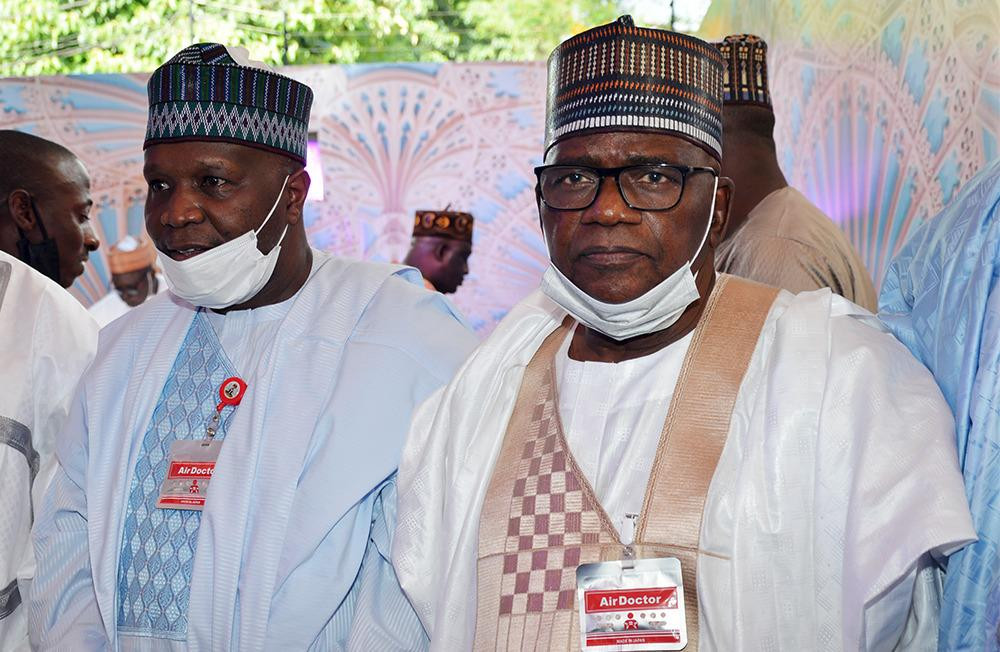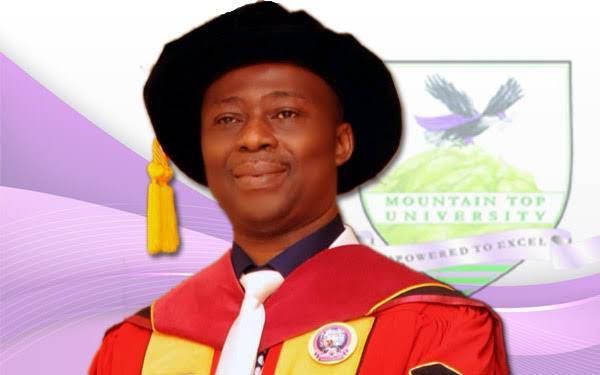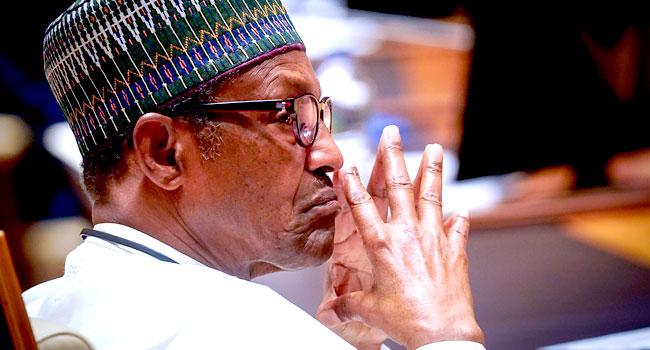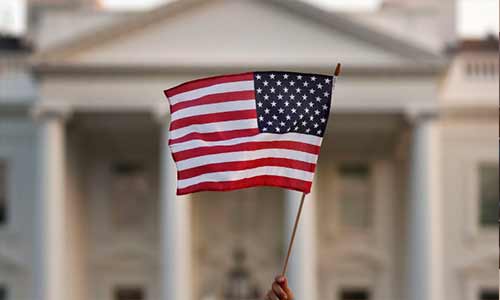Immediate past National Vice Chairman, North Central in the ruling All Progressives Congress, APC, Ahmed Suleiman Wambai has let out some of the party’s well kept secrets why trying to explain the current power struggle threatening the foundation of the party. Wambai who spoke in Abuja detailed how Adams Oshiomhole, the ex-National Chairman of the party doled out billions of naira to ensure APC won the governorship elections in Imo, Kwara, Gombe, Zamfara, and Benue state. He said APC is not a political party but an almagamation of interests just for the purpose of grabbing power and as he insisted that the battle to control the party ahead of the 2023 presidency led to the failure of the party to win the recent Edo governorship election, the sack of Oshiomhole and the gang up against a national leader of the party, Asiwaju Bola Ahmed Tinubu by APC governors. He boasted that despite losing the Edo governorship seat at the poll, the party would still remove Governor Godwin Obaseki on technical grounds using the courts. His words, “Oshiomhole was the only person that gave N20 million and N10 million contributions to all the Senators and House of Representatives candidates during the election. He was the only person that gave some governorship candidates of some states we desired to win like Imo, Kwara, Gombe and Zamfara N1 billion each, Benue, about N700 million.”
Is this the Nigeria of your dream?
Apart from our independence as a sovereign nation, the fact that Nigeria has remained an indivisible and indissoluble entity is enough to say that it is a country of my dream. There must be conflict and resolution in every establishment. In the conflicts, we must identify our differences and know how to consummate the differences.
The good thing is that we have been able to domesticate some of the factors confronting us as source of division and unity. There is no nation without its peculiar problems but the good thing is that the more problems we have the more solution we deploy in handling them.
We have so many tribes, religions in Nigeria but we have tried to use them to our advantage; to add value to the development of the country. We have tumbled and fumbled in our journey to greatness and have also converted some of the flaws to our collective benefits.
Why has it become very difficult for Nigerians to give President Buhari some benefits of doubt despite all he has achieved?
President Buhari came when this country was heading to the point of no return. The healthcare, social services, leadership, human dignity were all lost. There was so much decay in the country due to the 16 years misrule.
People from all corners of the country looked up to Buhari as a man of integrity, honesty. But there was a problem along the line. When he came with all the high expectations, nobody thought the situation will be like this. There was collapse in the economic indices. There was sharp drop in the price of crude oil in the international market.
He could not do any magic to change the narratives of the market equilibrium of price fluctuation in the global market. But Nigerians failed to understand that Buhari was handicapped in dealing with the forces controlling the crude oil in the market. The good thing is that nobody can accuse Buhari of lacking in integrity, or that he is a corrupt leader.
The biggest problem we have is the failure to realise that Buhari cannot be the governor of Nasarawa, Bauchi, Kano, Lagos and other states in the country. Corruption is already enshrined in our political system; economic, social and religious systems, including the clergies of the country.
The clergies and Ulamas are corrupt and Buhari cannot change them overnight. There is so much corruption in the land and the only way to kill it is by revolution. Anybody found guilty of corruption should be killed. I cannot imagine how this country will be in the next 20 years considering the fact that corruption is permeating the lives of the youths and children.
The biggest danger facing this country is that everybody is chasing wealth and riches. If only government will take strong stand against corruption so that whoever that is corrupt should be sanctioned heavily. If they do it successfully in China, we have to imitate the China model to live above board.
If political leaders should imitate Buhari, all the Ministers, Judges, heads of agencies will not be found wanting. We are becoming inherently sick otherwise, how can someone steal money as huge as N1 billion or $1 million? We have seen Nigerians with oil wells, estates, other investments, yet they are not resting. Surprisingly, whether they got them fraudulently or genuinely, they won’t invest in areas to help the people.
The religious and tribal differences are others constituting major problems facing the country. Everything is interpreted along tribal and religious bias. We have failed to capitalise on using such differences as a catalyst for the development of the country.
We have failed to realise that anybody that can provide good leadership should be regarded as a leader irrespective of his religion and tribe. It is unfortunate for this country that people have refused to change despite this journey of 60 years of independence.
Another serious problem is lack of ideological discipline by the political leaders. All those people in the PDP previously are now in charge of proceedings in the APC. They have held the leadership of the country hostage. We have seen politicians in APC today, PDP tomorrow and back to APC again in no distant time. We lack ideological consistency.
Will it be right to say that the APC has failed Nigerians having failed to fix all these problems you enumerated?
I won’t say with certainty that APC has failed Nigerians even though failure is inherently inbuilt in Nigerians. We will never do something to progress. The APC came with high enthusiasm to right the wrong. But, can we say that some of the Ministers are worthy enough to be one? Are they looking for money or rendering services?
The unfortunate thing in the APC is that we don’t have reward system. Those that worked and suffered for the party in all the states are not rewarded. Things are boomeranging because those that did not work for the APC are the ones rewarded and enjoying the fruits they did not sow.
There is no discipline in the APC till this moment. In the real sense of it, the APC is not a political party, but an amalgamation of interests for power quest and to wrestle power from the PDP. The Comrade Adams Oshiomhole-led NWC tried everything possible to redefine the objective and modus operandi of the party but the governors will not allow us.
The actions of the governors are the inherent behaviour of the PDP. In the constitution, the party is supreme but in the real sense of it, nobody cares in APC. It is a case of as far as I am a governor, I must have a control and the party must do his biddings. The governors’ quest for control and influence is what destroyed the APC and unfortunately under the influence of Mr President because he is a man of few words.
People took advantage to do everything they like using the name of Mr President. They just drop the name of Mr President everywhere and for their selfish aggrandisement. How can we operate in such way like we are in banana republic?
We cannot make any progress operating in such manner. We are in a country everybody does and acts the way he likes regardless of if he is infringing on another person’s right. The most painful thing is that they don’t care if Mr President is there or not. They take advantage of Mr President so much because he does not talk.
If it were Mr President of 1984, all of them could have been in jail. But if he takes them to jail, they will claim social stigma. They will accuse him of being dictatorial and that he is operating in an anti-democratic disposition.
He still remains a round peg in a round hole but unfortunately most of our people blame him while other political leaders are busy looking for money. Nobody is concerned about this country. Patriotism is completely missing.
Do you have any regret being part of the Oshiomhole-led NWC especially as they were blamed for being responsible for the problems of the party?
As far as I am concerned, Oshiomhole has paid his price and he has done well. Those people against him are the same clique against Mr President, Tinubu and the principle of the rule of law. They will object the moment things are not done their way. No party can function very well without discipline.
We supported Oshiomhole for two reasons. One is because he is our leader and we are supposed to be obedient to him as a leader. In the dissolved APC NWC, it was only about two or three persons that were anti-Oshiomhole. We would have gotten justice if we had gone to the court but we did not because of the interest of the party we have in our heart. APC is above every member of the party.
In the history of political party, Oshiomhole remains the only chairman that governors did not contribute money to the party purse under him. No governor contributed to the running of the party under Oshiomhole. We did that so that the party could be independent.
We never go cap in hand to any ministry for contract or patronages for the survival of the party. Oshiomhole was the only person that gave N20 million and N10 million contributions to all the Senators and House of Representatives candidates during the election.
He was the only person that gave some governorship candidates of some states we desired to win like Imo, Kwara, Gombe and Zamfara N1 billion each, Benue, about N700 million. We did all these from the purse of the party. In the history of political party, no one has done that. Ask me the source of the money, it was through the sale of our nomination forms. We deliberately raised the price of governorship nomination form to N22 million to reduce controversy, conflict and unnecessary competition.
We wanted to stop some unserious persons from picking the form. We even refunded the money of those that lost the primaries. Oshiomhole has never been dictated to by Mr President, the governors or the Ministers. That is the ideal way a party should run as enshrined in the constitution of the party.
Why are the APC governors against Oshiomhole?
They are against him because 2023 election is around the corner. Some of them want to be the next president, some want to be the vice president but they forgot that only God Almighty determines who becomes the next president and vice president. Many of them are living in illusion.
It was because of that interest that they connived and deceived the president. On several instances, they had wanted the Oshiomhole-led NWC to be dissolved but Mr President refused. But they used everything at their disposal in their desperation to sack us. We have left the party, let them run it, let them produce the president in 2023.
But if they are against Bola Tinubu, a major stakeholder in this party, there will definitely be a problem because he is too big to be sacrificed. I know that none of them dictating now, abusing Mr President and jostling to scheme out Tinubu will be able to deliver their zone.
Would the NWC have done things differently if given another opportunity?
In retrospect, what we would have done would have been to carry along and accommodate those interests we previously felt did not matter then. We were so serious to observe the stipulations of the party constitution.
What about the claims that no member of the NWC could challenge Oshiomhole especially on the issue of Governor Godwin Obaseki?
Challenging Oshiomhole is not the issue. You see, the governors have a cartel that no matter how bad you are as a governor, you must be allowed to recontest. The governors knew that Obaseki was not democratic by denying 17 lawmakers from being sworn-in. We did everything to settle this brouhaha but Obaseki refused. We involved the governors without knowing that they are in secret pact with him. The governors will say one thing before Oshiomhole and talk another thing behind him. We arranged a meeting between them, involving the governors, but Obaseki declined.
We arranged a meeting between them and the Senate President, yet Obaseki refused. He would have given Oshiomhole some level of respect for spending so much to make him governor. Oshiomhole is not the type that could request money from Obaseki. We asked him what was the problem with Oshiomhole but he said it was a matter of trust. He said Oshiomhole did not trust him, never allowed him to conduct his primary and even when we convinced him to conduct the primary, only four of his 24-men lost. It was a fair deal because you cannot get all in a democracy.
Why did APC lose in Edo governorship election?
It was pure conspiracy. Both PDP and APC members joined forces. But I tell you what, we have not lost that election. We are taking over Edo state on technical grounds. Obaseki has no paper and we are waiting to see the governor, any court or government that will prove that Obaseki is qualified.
Secondly, Obaseki lied under oath and received nomination forms from two political parties against the ruling of the Supreme Court. This is just a temporary celebration for him.
What is the zoning arrangement in APC ahead of the 2023 presidential election?
The constitution of the party is concerned about Nigeria’s unity. Zoning is an unwritten law in APC but we have to live with it. For this country to be socially, politically and economically stable, we have to be considerate. With the president coming from the north, vice president from the south, then by way of micro-zoning, the Senate President is from the Northeast, Speaker from Southwest.
As an apostle of zoning, I strongly believe that power should shift from the north to the south so that everybody will look at the APC as an umbrella of social mitigation. It was difficult for President Buhari to beat PDP until the southerners joined forces with us. I am sure that if Tinubu did not key into the merger, Buhari would not have won that election. For anybody sitting somewhere in the north thinking that power should not shift to the south, the person should be an enemy to the progressive tenet of the APC. The person is not only living in the past but a daydreamer.
This country cannot disintegrate because of the selfish ambition of certain persons to oppose the statutory eight years. If we want to live in peace in this country, we must accept and live with the reality of the fact that zoning must be maintained.
What is your advice to the Governor Buni-led APC caretaker committee?
Don’t forget that Mr President endorsed it and anything he endorses, is generally accepted in the spirit of leadership role. We will be disrespecting our leader by taking the case to court. The decision taken by Mr President did not go down well with us, but we have to swallow the bitter pill of democratisation. We did it in the spirit for the party to get direction.
I call on the caretaker committee to work assiduously to ensure that they did not put bias. They should not listen to one section of the party and ignore the other; the problem of the party will persist. I believe that the governor of Yobe state, a seasoned politician, who is the chairman of the party, will know the consequences of his action and inactions of negating one section of the party.
How true is the allegation that the Oshiomhole-led NWC was working for Tinubu 2023 presidency?
Let me tell you the honest truth, Tinubu did not bring a couple of members of that NWC into the APC national leadership. Don’t forget that we are all educated. We are men of integrity, representatives of our people, we have conscience. People are afraid of Tinubu so much like people are afraid of snake.
Sincerely speaking, Tinubu does not have Oshiomhole’s number. I know a couple of times Oshiomhole tried to reach him on phone, but he did not pick the calls. It was bad that we have to use somebody very close to him to let Oshiomhole talk to him. I am a big fan of Tinubu, but I cannot reach him because he does not know me.
I don’t know why the unnecessary exaggerated phobia for Tinubu, yet he is the only man that contributes to the survival of all states in the country. There is no governor that has not gone to Tinubu, either for court cases, getting a ticket and he has been up and doing in handling those romances.
There is no goal getter in APC like Tinubu. Everybody in APC who has the desire to contest in 2023 as a governor or president will need the support of Tinubu.
(Saturday Sun)


































